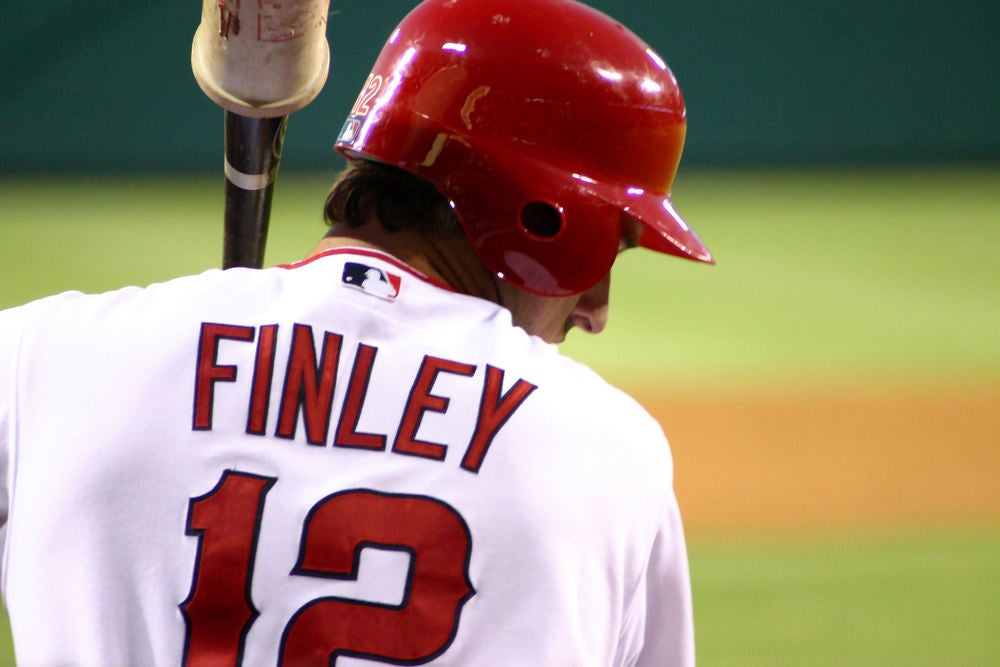
Professional sportsmen are unique, even among other high-earners in the entertainment industry. A relatively short career, threatened by loss of form or debilitating injury make sports stars complex clients for private banks, as well as potentially extremely lucrative, writes Jamie Crawley.
Bryce Harper is 26 years-old and, in seven years in Major League Baseball, has established himself as one of the most talented, charismatic and marketable players in the game. At the end of the 2018 season he entered free agency having reportedly rejected a mammoth contract extension offer from the Washington Nationals. At the time of writing, he is being courted by a number of clubs interested in his services, with experts suggesting Harper and his agent are looking for a 10-year contract worth $400 million.
Should that deal come to fruition, Harper’s salary will tally over $450 million by the time the contract expires. This is not including windfalls from sponsorship and endorsements which would likely carry him comfortably above the half a billion dollar mark – and he will still be four years shy of his 40th birthday.

How well do you really know your competitors?
Access the most comprehensive Company Profiles on the market, powered by GlobalData. Save hours of research. Gain competitive edge.

Thank you!
Your download email will arrive shortly
Not ready to buy yet? Download a free sample
We are confident about the unique quality of our Company Profiles. However, we want you to make the most beneficial decision for your business, so we offer a free sample that you can download by submitting the below form
By GlobalDataSports and Entertainment at Private Banks
It is unlikely that any baseball fan working in private banking or wealth management would turn down the opportunity to work alongside Harper. And who could blame them? Top sportsmen have potential to earn eye-watering sums of money from a relatively young age.
But often their education or background leaves them ill prepared for handling such wealth, requiring a great deal of hands-on assistance.
“They have a relatively small window when their earnings are at their peak,” Mark Niall, head of Media and Entertainment Group at HSBC, told PBI. “We have the very long-term – even retirement – on the horizon almost as soon as we start working with them.”
Like HSBC, many private banks have specialised divisions in place for courting and managing sportspeople’s finances. Coutts’ Sports and Entertainment team was established nearly 20 years ago, while Barclays and Standard Chartered also possess similar units. Earlier this year Goldman Sachs followed suit launching a new strategy for courting wealthy sportsmen, which is part of its ongoing expansion into the private wealth management industry.
Morgan Stanley formed its Global Sports and Entertainment division in 2014, with an aim of offering management solutions to sports stars from the earliest stages of their careers. Whether it’s arranging short-term unsecured loans for prospective players in the lead up to acquiring their first professional contracts or offering programs to educate young athletes on topics like budgeting, credit, debt and cash flow, Morgan Stanley certainly wants to get in on the ground floor with up-and-coming sportsmen.

Courting up-and-coming stars
Morgan Stanley can in fact boast bona fide personal experience in the sporting world in its former professional baseball player turned financial advisor, Steve Finley. During a 19-year career, in which he won multiple individual accolades and a World Series with the Arizona Diamondbacks in 2001, Finley experienced first hand the excitement and the temptations of receiving that first professional contract. After retiring, Finley made an ill-timed investment in the restaurant business in 2008, then began working in the insurance industry, before joining Morgan Stanley in 2014.
“I help young players make their baseball earnings last a lifetime,” he wrote on Business Insider earlier this year. “Young athletes who have just been drafted, for example, may buy expensive cars, houses, bling – you name it. The last thing you want is to get to the end of the year and think, ‘Where did it all go?’”
This is a view shared by Matt Wotton, team leader of private banking within the Sports and Entertainment group at Coutts. “It’s an attractive industry to a lot of people,” Wotton told PBI. “But they realise swiftly it’s not straightforward. Client relationships are built on trust which takes years to build up.”
For every superstar earning dream wages as the heart and soul of his club, there are a number of players whose careers are all the more precarious: journeymen who are transferred to a new club every other season, suitcases seldom unpacked. With this comes the disruption to the day-to-day life of finding new homes and new schools for the children.
Wotton therefore stresses the importance of building relationships with clients, which strike the right balance of professional and personal. “We’re interested in them as people. We want to get to know them as human beings, and we’re careful not to act too much like fans – we’d never ask them for free tickets for example.”
And, much like Morgan Stanley, Coutts place great value in getting to know sportspeople at the earliest opportunity. “Young players are aware they’re in a new financial position, and they want to know who to trust,” Wotton says.
Brand image and word of mouth prove effective ways of courting up-and-coming stars, so working closely with agents and clubs is vital. “You certainly see a dressing room effect. When a player can walk in there and his teammates see the Coutts credit card, word spreads.”
“HSBC’s financial strength and global footprint is appealing, especially as sports careers can be very international, says Mark Niall. “Our commercial heritage is also an advantage; they need advisors who know about running a business or building a brand.”
Dealing with Headstrong Stars
Wotton believes that keeping it simple, and not bamboozling the up-and-coming athletes with a profligacy of information is a necessity. “‘Save first’ is what I tell them. Build a pot and get on the property ladder. Only with older, more experienced players would I look at investment ventures.”
This is where maintaining fruitful relationships in sports wealth management can become complicated. Top-level sportsmen are by-and-large young men, and likely to be headstrong to a fault – it would have been nigh on impossible for them to reach the level they have were they not. Conversely, they are used to getting their own way and therefore can verge on the high-maintenance or the highly-strung.
Wotton has known many a sports star approach him wanting to invest in an exciting sounding but risky venture that happens to be flavour of the month. “Sometimes you just have to tell them ‘No’, which they might not be very used to hearing, But that builds respect and, with it, trust.”
Aversion to risk is a trait young sportsmen would be well advised to become familiar with. Statistics around the long-term financial security of top-level sportsmen are alarming. An investigation by FourFourTwo magazine earlier this year discovered that two out of every five footballers face financial difficulties during their careers or post-retirement. American magazine Sports Illustrated found that a 78% of NFL (National Football League) players experienced such difficulty two years after leaving the game and 60% of NBA (National Basketball Association) retirees go bankrupt within five years.
While it is unclear whether these cases are for want of expert private banking management or in spite of it, it serves as a reminder of the importance of prior planning among young sportsmen. At the same time it may be an indicator to financial institutions who wish to move into the industry should proceed with caution.







